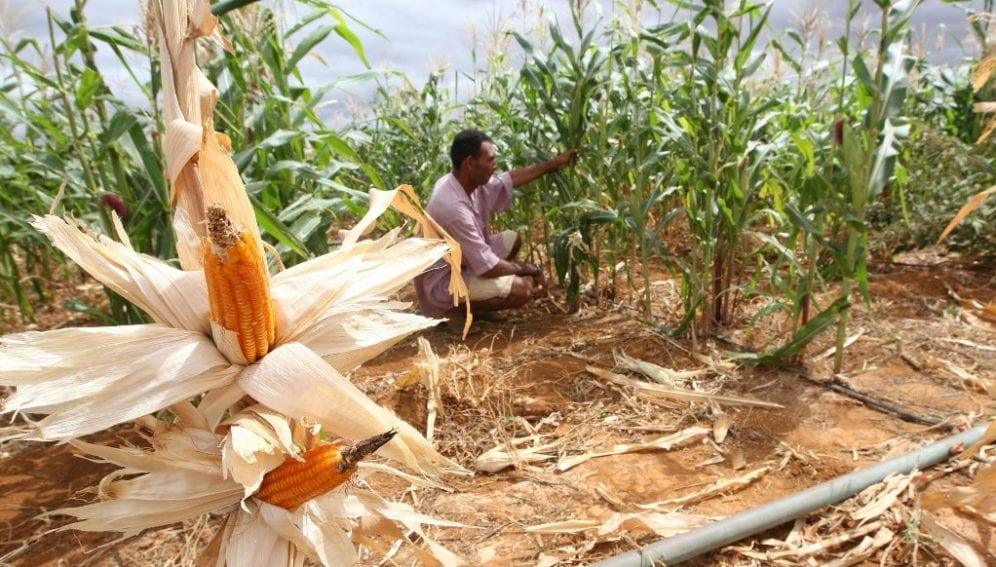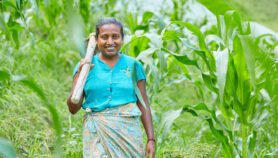Send to a friend
The details you provide on this page will not be used to send unsolicited email, and will not be sold to a 3rd party. See privacy policy.
[SÃO PAULO] Changes in temperature and rainfall could drastically reduce maize yields by the end of the century in northeast Brazil, one of the country's poorest and most vulnerable regions, environmental experts warn.
A study to be published in May in the journal Agricultural Water Management simulated the potential impact of climate change on maize yields in northeast Brazil in two possible climatic scenarios developed by the Intergovernmental Panel on Climate Change (IPCC).
In the most optimistic, greenhouse gas emissions would stop increasing by the 2040s and the rise in average temperature in Brazil would vary from 0.3º to 1.7ºC up to the year 2100.
“Irrigation and the development of new maize varieties would be essential to sustaining productivity in adverse climate change scenarios.”
Minella Martins, Brazil's National Center for Monitoring and Early Warning of Natural Disasters
In the most pessimistic, emissions would continue to grow until the end of the century and the average temperature in Brazil would be around 3º to 6ºC higher by 2100 than currently.
The projections suggest that climate change could affect maize yields in both scenarios, resulting in a decline in production of between 30 and 60 per cent in northeast Brazil.
The region is home to more than 50 million people, about 26 per cent of them in semi-arid places where water is scarce. It is also one of Brazil's most backward in terms of social indicators linked to poverty.
Maize is one of the most produced grains in the northeast of the country and a staple food for local people and animals. Rainfall is vital to its growth since smallholder farmers have limited access to technological resources.
Minella Martins, an agricultural engineer at Brazil's National Center for Monitoring and Early Warning of Natural Disasters, and leading author of the study, told SciDev.net: “We verified [that] in the worst scenario crop losses may hit more than 60 per cent by 2070.”
But she argues that there is still time to mitigate the situation if the crop cycle is lengthened and irrigation introduced during dryer periods.
“Considering the expansion of irrigated areas until 2030, our simulations indicate that losses will remain at less than 20 per cent in the case of irrigated cultivars with longer crop cycles for all scenarios, except the most pessimistic,” said Martins.
“Irrigation and the development of new maize varieties would be essential to sustaining productivity in adverse climate change scenarios,” she added.
Maize yields to the south of the region would be most affected, according to the findings. Several other studies have found that these areas are already facing longer and more frequent droughts.
Agriculture in northeast Brazil represents a significant source of income, with family farming responsible for 82.6 per cent of jobs in rural areas and 50 per cent of production value.
Since irrigation is likely to become essential to sustain maize productivity, Paulo Cesar Sentelhas, an agricultural engineer at the University of Sao Paulo’s Luiz de Queiroz College of Agriculture, says it is crucial to evaluate future water usage demands.
However, he cautions: “Climate model projections are meant to produce plausible future scenarios to facilitate the exploration of crop management strategies, so they cannot be treated as a deterministic prediction of the future climate.”
This piece was originally produced by SciDev.Net’s Latin America and Caribbean edition.
The study to be published in Agricultural Water Management was supported by FAPESP, a donor of SciDev.Net.














